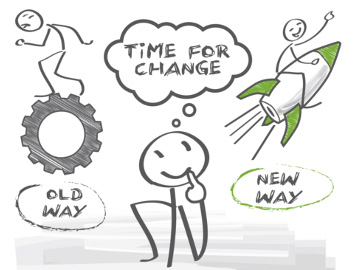
Many years after Lehi's family had wandered in the wilderness for eight years, we see an interesting difference between the Lamanites and Nephites, in the first few books of the Book of Mormon.
The following conditions existed from about 600 to 560 B.C., during the time Lehi's family wandered in the wilderness, and immediately after they arrived in the promised land.
~They lived in tents. (1 Nephi 2:15 2 Nephi 5:7)
~They slew their food in the wilderness and lived sometimes only on raw meat. (1 Nephi 16:14-15,30 1 Nephi 17:2)
~Their skill was in weapons for hunting and protection, primarily the bow. (1 Nephi 16:18,21,23)
~Laman and Lemuel did not want to labor. (1 Nephi 17:18)
~Laman and Lemuel stated they should be the rulers. (1 Nephi 16:37,38 2 Nephi 5:3)
~Laman stirred others up against Nephi. (1 Nephi 16:38)
~Laman and Lemuel sought Nephi's life. (1 Nephi 7:16 2 Nephi 5:2)
Again, the conditions listed above existed from about 600 to 560 B.C.
Now we jump down the road 120 years or more. What kind of progress should be made in 120 years? With the Nephites, we definitely see progress and signs of a civilized society:
~They grew crops and raised flocks. (Enos 1:21 Mosiah 9:9 Mosiah 10:4)
~They built buildings. (Jarom 1:8 2 Nephi 5:15 Mosiah 9:4)
~They created machinery. (Jarom 1:8)
~They built military weapons. (Jarom 1:8)
~They worked metal and wood. (2 Nephi 5:15,16)
~They made clothing. (Mosiah 10:5)
~They kept and preserved records. (WOM 1:10 Enos 1:15-16)
The Lamanites are different. We see a largely static society, with many of the conditions they lived with in the wilderness before crossing the ocean:
~They lived in tents. (Enos 1:20)
~They slew their food in the wilderness and sometimes only lived on raw meat. (2 Nephi 5:24 Enos 1:20 Jarom 1:6)
~They were skilled with bows and weapons for hunting or protection. (Enos 1:20)
~They did not want to labor. (2 Nephi 5:24 Mosiah 9:12)
~They felt they should be ruling the Nephites. (Mosiah 10:15)
~They were stirred up to anger against the Nephites. (Mosiah 10:12-18)
~They sought to destroy (kill) the Nephites. (Enos 1:20 Mosiah 10:17)
~They wore little clothing. (Mosiah 10:8)
~They tried to destroy records. (Enos 1:14)
There are definitely other examples of these conditions that occur later in the Book of Mormon, but this list will suffice. A point to note is Laman, Lemuel, Nephi, and all of Lehi's family went through the same wilderness experience. Laman and Lemuel helped Nephi build the ship, which was of "fine workmanship." So, Nephi wasn't the only one with building (woodworking) experience. And yet, although their ancestors went through the same experiences, Lehi's posterity enjoyed greatly different societies. Why?
With God and the gospel in our lives, we move forward; we progress higher and higher. Without God and the gospel in our lives, we are stuck. We at best maintain the level we're at currently. And that is what the Lamanites were doing 120 years after arriving in the promised land: Still living in tents, still eating raw meat, and still solving all problems with the bow and weapons.
This is a generality. Surely there were some Lamanites who were more civilized and some Nephites who were less so. But the potential to be blocked in our progression is something to examine in our lives. To the degree we accept and find truth, we grow. Otherwise, our progress is halted. We see this in individual lives and through generations. Would Laman and Lemuel have acted differently if they could have seen their posterity hundreds of years later?
In my life, I find in some areas I'm like the Nephites and I've made great strides. In others, I'm like the Lamanites and seem to be in the same place I was years or even decades ago.
We need to be careful about what traits and attitudes we pass on to our children. They learn from what we say, but even more from what we do. If we are focused on and devoted to the gospel, chances are they will be the same and maybe more so. If we are lax and sometimes indifferent toward the gospel, chances are they will be the same and maybe more so.
Richard L. Evans summed it up succinctly:
"Sometimes some parents mistakenly feel that they can relax a little as to conduct and conformity or take perhaps a so-called liberal view of basic and fundamental things—thinking that a little laxness or indulgence won't matter—or they may fail to teach or to attend Church, or may voice critical views. Some parents... seem to feel that they can ease up a little on the fundamentals without affecting their family or their family's future. But, if a parent goes a little off course, the children are likely to exceed the parent's example."
Our greatest gift to our children is our faithfulness in the gospel of Jesus Christ. And hopefully they will match and exceed what we've shown them.



